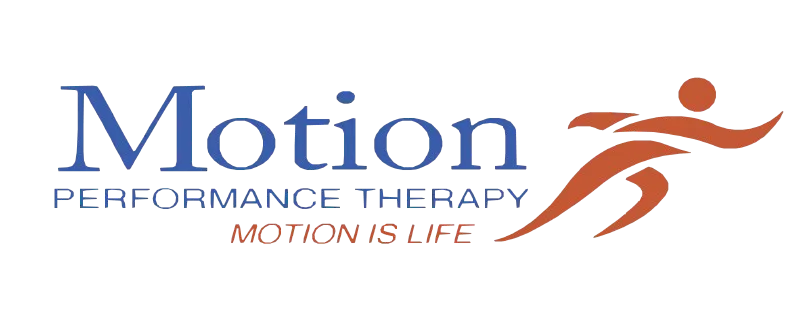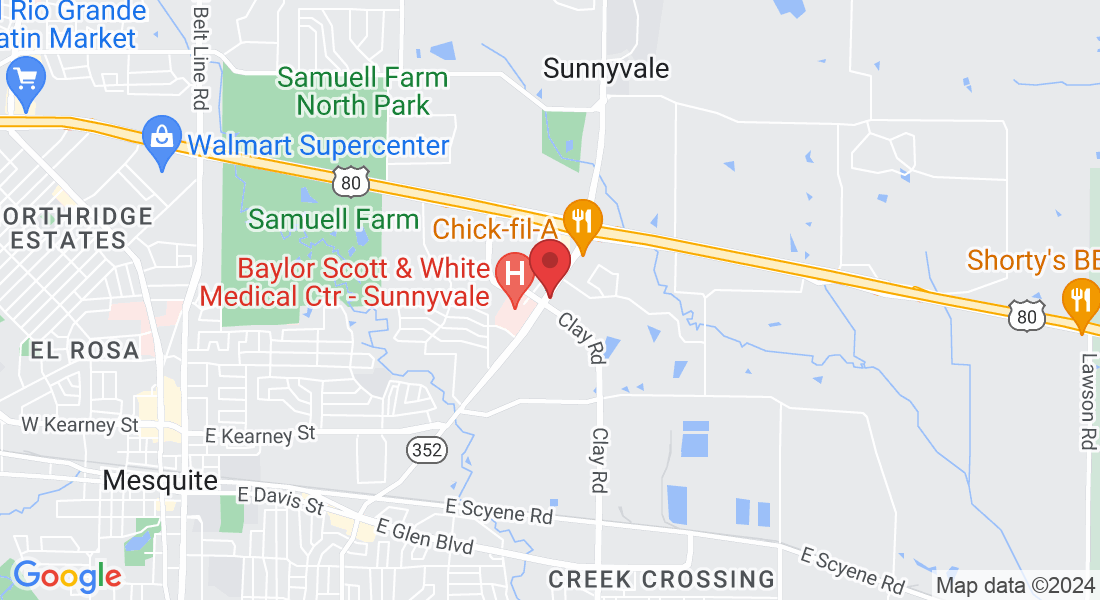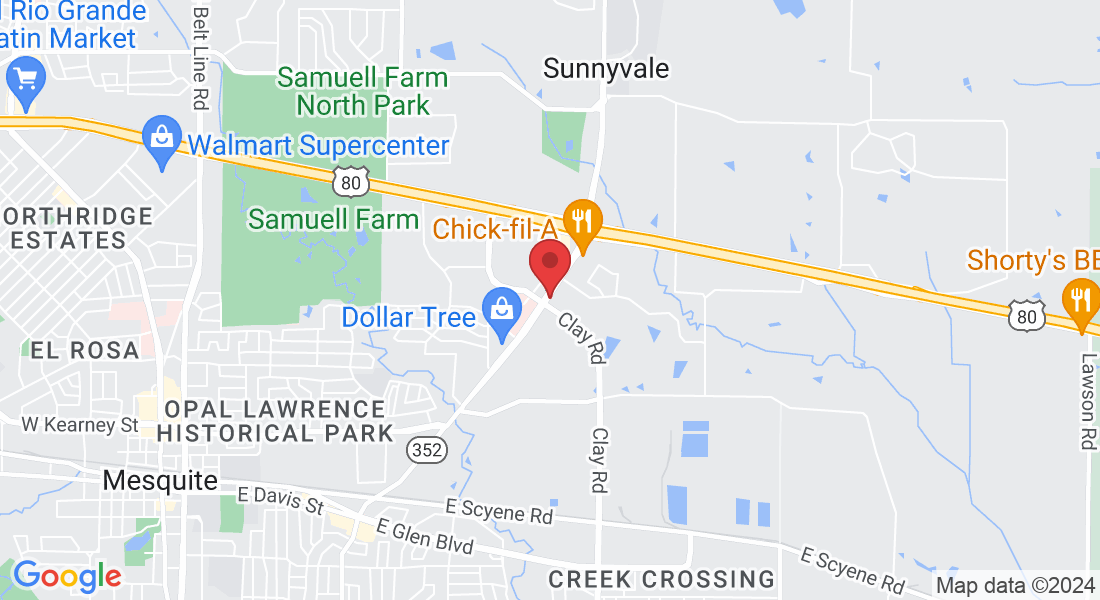214-256-3778
(214) 256-3770


Ankle Replacement Specialist
The orthopedic team at Dallas Orthopedic & Shoulder Institute in Sunnyvale and Kaufman, Texas, can help. They offer ankle replacement surgery to replace your joint, improve mobility, and give you a better quality of life. Schedule a consultation with Dallas Orthopedic & Shoulder Institute by phone or online to learn more about ankle replacement.


Ankle Replacement Specialist
The orthopedic team at Dallas Orthopedic & Shoulder Institute in Sunnyvale and Kaufman, Texas, can help. They offer ankle replacement surgery to replace your joint, improve mobility, and give you a better quality of life. Schedule a consultation with Dallas Orthopedic & Shoulder Institute by phone or online to learn more about ankle replacement.
Ankle Replacement Q & A
What is ankle replacement?
Ankle replacement is a surgery in which your orthopedic specialist replaces a damaged ankle joint with artificial implants. You might be a good candidate for ankle replacement if you have a bone fracture, another severe injury, osteoarthritis, or rheumatoid arthritis, and you experience ongoing (chronic) ankle pain because of it.
Is the procedure right for me?
The Dallas Orthopedic & Shoulder Institute team discusses the risks and benefits of ankle replacement before surgery. They review your medical history and symptoms and examine your ankle joint. They use X-rays, CT scans, MRIs, or ultrasound to determine the extent of the joint’s tissue breakdown.
How should I prepare for my surgery?
To prepare for ankle replacement surgery, stop taking specific medications if your surgeon recommends it. You should not smoke or drink large amounts of alcohol. Have someone available to drive you home after surgery, and don’t eat or drink anything the day of your procedure.
What should I expect during the procedure?
Before surgery, your provider gives you a general anesthetic to keep you asleep, or a regional anesthetic with a sedative so you can stay awake and relaxed but avoid discomfort.
Your surgeon makes an incision in your ankle to expose the joint, removes damaged cartilage and bone, replacing all or part of the joint with artificial metal parts and screws. They put tendons back in place and close the incision using stitches.
What happens after ankle replacement surgery?
After ankle replacement surgery, you relax in a recovery area while the anesthesia wears off. You might stay overnight at the surgery center for at least one night, wear a cast or brace after surgery, and use crutches for a while. A family member or friend needs to drive you home and can help you out during recovery.
Follow all your post-surgical instructions. Take medications as prescribed, rest and elevate your ankle, and ice the treatment area as needed. Physical therapy can help make the best of your recovery after surgery. Attend all follow-up appointments with Dallas Orthopedic & Shoulder Institute and call the office if your pain gets worse or you notice other complications.
Don’t live with a severe ankle injury or the chronic pain associated with arthritis when you don’t have to. Schedule a consultation with Dallas Orthopedic & Shoulder Institute by phone or online to find out if ankle replacement is right for you.cement is a surgery in which your orthopedic specialist replaces a damaged ankle joint with artificial implants. You might be a good candidate for ankle replacement if you have a bone fracture, another severe injury, osteoarthritis, or rheumatoid arthritis, and you experience ongoing (chronic) ankle pain because of it.
Ankle Replacement
Q & A
What is ankle replacement?
Ankle replacement is a surgery in which your orthopedic specialist replaces a damaged ankle joint with artificial implants. You might be a good candidate for ankle replacement if you have a bone fracture, another severe injury, osteoarthritis, or rheumatoid arthritis, and you experience ongoing (chronic) ankle pain because of it.
Is the procedure right for me?
The Dallas Orthopedic & Shoulder Institute team discusses the risks and benefits of ankle replacement before surgery. They review your medical history and symptoms and examine your ankle joint. They use X-rays, CT scans, MRIs, or ultrasound to determine the extent of the joint’s tissue breakdown.
How should I prepare for my surgery?
To prepare for ankle replacement surgery, stop taking specific medications if your surgeon recommends it. You should not smoke or drink large amounts of alcohol. Have someone available to drive you home after surgery, and don’t eat or drink anything the day of your procedure.
What should I expect during the procedure?
Before surgery, your provider gives you a general anesthetic to keep you asleep, or a regional anesthetic with a sedative so you can stay awake and relaxed but avoid discomfort.
Your surgeon makes an incision in your ankle to expose the joint, removes damaged cartilage and bone, replacing all or part of the joint with artificial metal parts and screws. They put tendons back in place and close the incision using stitches.
What happens after ankle replacement surgery?
After ankle replacement surgery, you relax in a recovery area while the anesthesia wears off. You might stay overnight at the surgery center for at least one night, wear a cast or brace after surgery, and use crutches for a while. A family member or friend needs to drive you home and can help you out during recovery.
Follow all your post-surgical instructions. Take medications as prescribed, rest and elevate your ankle, and ice the treatment area as needed. Physical therapy can help make the best of your recovery after surgery. Attend all follow-up appointments with Dallas Orthopedic & Shoulder Institute and call the office if your pain gets worse or you notice other complications.
Don’t live with a severe ankle injury or the chronic pain associated with arthritis when you don’t have to. Schedule a consultation with Dallas Orthopedic & Shoulder Institute by phone or online to find out if ankle replacement is right for you.cement is a surgery in which your orthopedic specialist replaces a damaged ankle joint with artificial implants. You might be a good candidate for ankle replacement if you have a bone fracture, another severe injury, osteoarthritis, or rheumatoid arthritis, and you experience ongoing (chronic) ankle pain because of it.
Our Patient Reviews
Our Locations
Dallas Orthopedic and Shoulder Institute - Sunnyvale
Office Hours
Monday through Friday - 8:00am – 5:00pm
Saturday & Sunday – CLOSED
Motion Performance Therapy - Sunnyvale
Clinic Hours
Monday through Thursday - 7:00 am - 5:30 pm
Friday, Saturday & Sunday - CLOSED
Phone Number:
214-256-3778
Address
222 South Collins Road, Suite 101
Sunnyvale, TX 75182
Dallas Orthopedic and Shoulder Institute - Kaufman
Office Hours
Monday through Thursday - 8:00am – 5:00pm
Friday, Saturday & Sunday - CLOSED
Motion Performance Therapy - Kaufman
Clinic Hours
Monday through Thursday - 7:00 am - 5:30 pm
Friday, Saturday & Sunday - CLOSED
Phone Number:
214-256-3778
Address
874 Ed Hall Dr Suite 104, Kaufman, TX 75142 (Professional building next to Texas Health Presbyterian Hospital in Kaufman)
Our Patient Reviews
Our Locations
Dallas Orthopedic and Shoulder Institute - Sunnyvale
Office Hours
Monday through Friday - 8:00am – 5:00pm
Saturday & Sunday – CLOSED
Dallas Orthopedic and Shoulder Institute - Sunnyvale
Clinic Hours
Monday through Thursday - 7:00 am - 5:30pm
Friday, Saturday & Sunday - CLOSED
Phone Number:
214-256-3778
Address
222 South Collins Road, Suite 101
Sunnyvale, TX 75182
Dallas Orthopedic and Shoulder Institute - Kaufman
Office Hours
Monday through Thursday - 8:00am –5:00pm
Friday, Saturday & Sunday - CLOSED
Motion Performance Therapy - Kaufman
Clinic Hours
Monday through Thursday - 8:00am –5:00pm
Friday, Saturday & Sunday - CLOSED
Phone Number:
214-256-3778
Address
874 Ed Hall Dr Suite 104, Kaufman, TX 75142 (Professional building next to Texas Health Presbyterian Hospital in Kaufman)


Copyright 2026Dallas Orthopedic and Shoulder Institute. All rights reserved





